Sustainability is a priority for Loro Parque
Our facilities, our technology and our processes are always approached from the perspective of conservation, responsibility, optimization of resources and protection of species and the environment.
Our facilities, our technology and our processes are always approached from the perspective of conservation, responsibility, optimization of resources and protection of species and the environment.
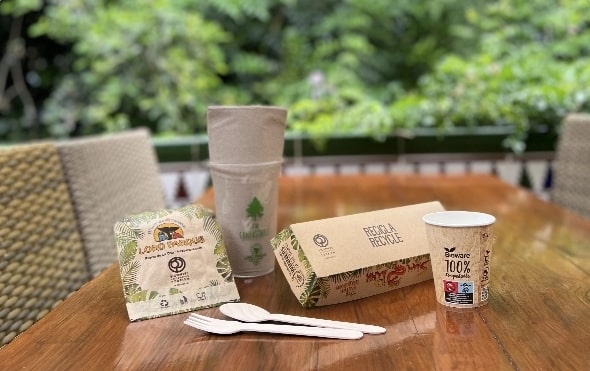
We have implemented a policy of eliminating single-use plastic. Our restaurants use compostable tableware, we have eliminated single-dose options, our transparent packaging is made from corn and beet polymers, we have installed water fountains in staff areas….
Our plastic-free initiative extends to all departments and processes. For products from external suppliers, we have incorporated a policy of return and reuse of items containing plastic.
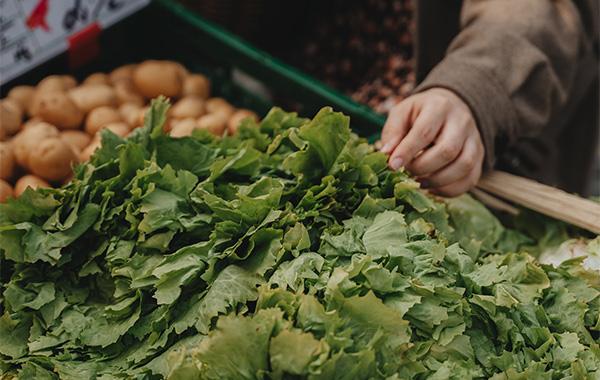
Loro Parque’s purchasing and acquisition policy is based on the selection of Kilometre 0 products certified by eco-labels. At present, Loro Parque has its own agricultural production, which is certified by the Instituto Canario de Calidad Agroalimentaria (Canary Islands Institute of Agri-Food Quality).
External suppliers are only chosen when there is insufficient supply in Tenerife or the Canary Islands.

We optimise the use of energy and water minimising consumption and choosing suppliers that use renewable energy sources. The fleet of vehicles in the park is being renewed with electric models with zero emissions. Machinery and systems are rigorously maintained to avoid energy leaks. 80% of the park’s electricity comes from our solar plants and wind turbines. At present, Loro Parque Group generates:
4Mw of wind energy in Telde + 2Mw of solar energy in Arico + 140Kw from Poema del Mar + 2Mw generated at ITER. A total of more than 8Mw.
We continue to move towards a more sustainable future by investing in renewable energy. One of our prominent projects is the Photovoltaic Park “LORO PARQUE II,” located in Arico, covering 13 hectares and with an installed capacity of 11.4 Mwp.
This park’s main objective is to generate electrical energy from renewable sources and transmit it to SET ICOR through an underground interconnection line of 20 kV that stretches over 4,450 meters. The generation system is based on solar modules mounted on aluminum structures, which convert solar energy into direct current.
It’s essential to highlight that this project has the support of the European Union through the European Regional Development Fund (ERDF) within the framework of the Sustainable Growth Operational Program 2014-2020 and under Thematic Objective 4: “Promoting the transition to a low-carbon economy in all sectors.” This reflects our commitment to a cleaner and more sustainable economy.
Furthermore, we want to inform you that we have received a grant for this project through the “Aids for Investment in Photovoltaic Facilities for the Production of Electric Energy of Photovoltaic Solar Technology Located in the Canary Islands (SOLCAN)” program. On May 4, 2021, we were granted funding of 990,660.00 euros to further our commitment to renewable energy in the Canary Islands.
Our goal is to achieve a self-sufficient and self-sustainable model.
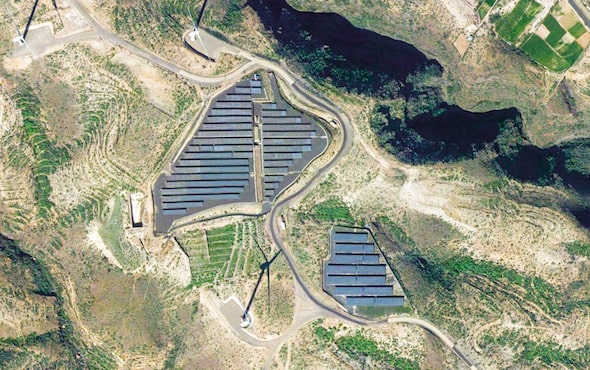
Loro Parque Group is a benchmark company in environmental care and responsibility. Since its inception, an intensive strategy has been developed to create sustainability-based energy policies and systems.
Loro Parque achieved the recognition, after the corresponding audits, of achieving a negative carbon footprint in its activity, following the official criteria in force until 5 July 2023.
This has been confirmed by EMAS, TÜV Rheinland Ibérica and Biosfere.
Currently, a regulation that does not take into account the clean energy generated by Loro Parque’s wind and photovoltaic plants when calculating the carbon footprint has been implemented. This means that we no longer achieve the negative carbon footprint that the previous calculation used to determine. According to this regulation, the Loro Parque Group shall undertake other measures to comply with the required regulations, following our path of environmental commitment and business excellence and further reducing our carbon footprint.
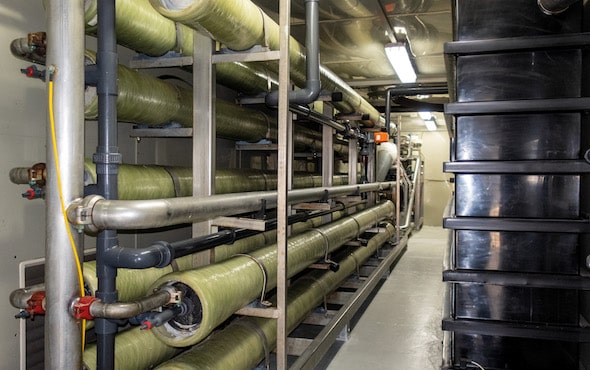
The waste management process is continuously optimised. All waste generated by the park and its visitors is responsibly managed by the relevant departments and removed by authorised waste managers. There are bins and containers in the facilities for the correct separation of waste and its subsequent recycling.
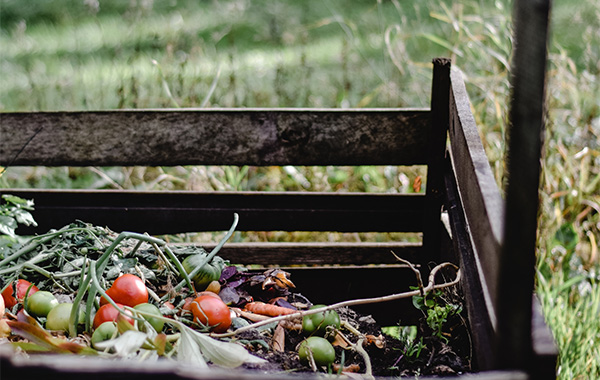
Loro Parque, throughout its history, has been a champion of sustainability, the rational use of resources and the minimisation of its environmental impact as the main tools to support a circular economy.
In our organisation, composting is a natural step towards achieving the group’s sustainability goals. This composting translates into a reduction in expenditure on phytosanitary fertilisers, thus closing the cycle of bio-waste generated by the group’s activities and caring for our soils by improving the fertility and growth of plants in all our green areas and agricultural holdings.
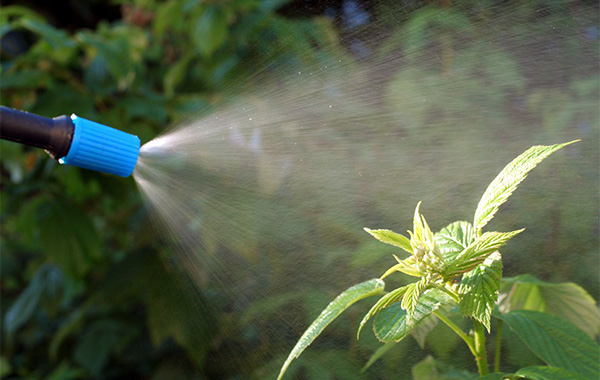
As part of our informative and educational work on biodiversity of the park and the planet, we opt for the use of organic and environmentally friendly phytosanitary products and fertilisers. We seek and implement as many alternatives to the use of conventional chemical products as the market offers.
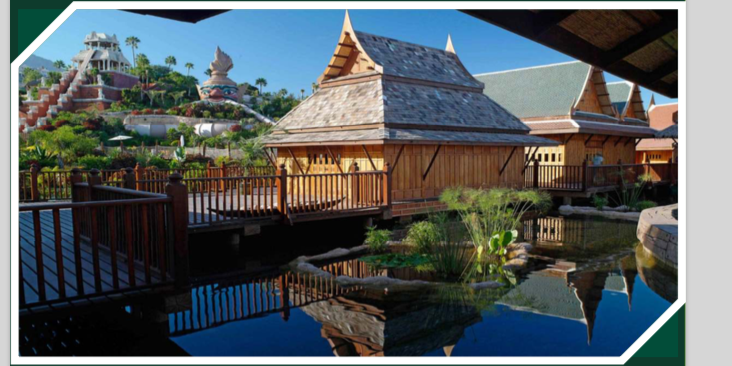
Loro Parque prepares an annual environmental declaration with the aim of providing the public and other interested parties with information regarding the environmental impact and performance of the organisation.
This Environmental Statement is the vehicle that allows the granting of the EMAS standard, and shows Loro Parque’s commitment to achieving the Sustainable Development Goals set out in the 2030 Agenda.
Our facilities, our technology and our processes are always approached from the perspective of conservation, responsibility, optimization of resources and protection of species and the environment.

We have implemented a policy of eliminating single-use plastic. Our restaurants use compostable tableware, we have eliminated single-dose options, our transparent packaging is made from corn and beet polymers, we have installed water fountains in staff areas….
Our plastic-free initiative extends to all departments and processes. For products from external suppliers, we have incorporated a policy of return and reuse of items containing plastic.

Loro Parque’s purchasing and acquisition policy is based on the selection of Kilometre 0 products certified by eco-labels. At present, Loro Parque has its own agricultural production, which is certified by the Instituto Canario de Calidad Agroalimentaria (Canary Islands Institute of Agri-Food Quality).
External suppliers are only chosen when there is insufficient supply in Tenerife or the Canary Islands.

We optimise the use of energy and water minimising consumption and choosing suppliers that use renewable energy sources. The fleet of vehicles in the park is being renewed with electric models with zero emissions. Machinery and systems are rigorously maintained to avoid energy leaks. 80% of the park’s electricity comes from our solar plants and wind turbines. At present, Loro Parque Group generates:
4Mw of wind energy in Telde + 2Mw of solar energy in Arico + 140Kw from Poema del Mar + 2Mw generated at ITER. A total of more than 8Mw.
We continue to move towards a more sustainable future by investing in renewable energy. One of our prominent projects is the Photovoltaic Park “LORO PARQUE II,” located in Arico, covering 13 hectares and with an installed capacity of 11.4 Mwp.
This park’s main objective is to generate electrical energy from renewable sources and transmit it to SET ICOR through an underground interconnection line of 20 kV that stretches over 4,450 meters. The generation system is based on solar modules mounted on aluminum structures, which convert solar energy into direct current.
It’s essential to highlight that this project has the support of the European Union through the European Regional Development Fund (ERDF) within the framework of the Sustainable Growth Operational Program 2014-2020 and under Thematic Objective 4: “Promoting the transition to a low-carbon economy in all sectors.” This reflects our commitment to a cleaner and more sustainable economy.
Furthermore, we want to inform you that we have received a grant for this project through the “Aids for Investment in Photovoltaic Facilities for the Production of Electric Energy of Photovoltaic Solar Technology Located in the Canary Islands (SOLCAN)” program. On May 4, 2021, we were granted funding of 990,660.00 euros to further our commitment to renewable energy in the Canary Islands.
Our goal is to achieve a self-sufficient and self-sustainable model.

Loro Parque Group is a benchmark company in environmental care and responsibility. Since its inception, an intensive strategy has been developed to create sustainability-based energy policies and systems.
Loro Parque achieved the recognition, after the corresponding audits, of achieving a negative carbon footprint in its activity, following the official criteria in force until 5 July 2023.
This has been confirmed by EMAS, TÜV Rheinland Ibérica and Biosfere.
Currently, a regulation that does not take into account the clean energy generated by Loro Parque’s wind and photovoltaic plants when calculating the carbon footprint has been implemented. This means that we no longer achieve the negative carbon footprint that the previous calculation used to determine. According to this regulation, the Loro Parque Group shall undertake other measures to comply with the required regulations, following our path of environmental commitment and business excellence and further reducing our carbon footprint.

The waste management process is continuously optimised. All waste generated by the park and its visitors is responsibly managed by the relevant departments and removed by authorised waste managers. There are bins and containers in the facilities for the correct separation of waste and its subsequent recycling.

Loro Parque, throughout its history, has been a champion of sustainability, the rational use of resources and the minimisation of its environmental impact as the main tools to support a circular economy.
In our organisation, composting is a natural step towards achieving the group’s sustainability goals. This composting translates into a reduction in expenditure on phytosanitary fertilisers, thus closing the cycle of bio-waste generated by the group’s activities and caring for our soils by improving the fertility and growth of plants in all our green areas and agricultural holdings.

As part of our informative and educational work on biodiversity of the park and the planet, we opt for the use of organic and environmentally friendly phytosanitary products and fertilisers. We seek and implement as many alternatives to the use of conventional chemical products as the market offers.

Loro Parque prepares an annual environmental declaration with the aim of providing the public and other interested parties with information regarding the environmental impact and performance of the organisation.
This Environmental Statement is the vehicle that allows the granting of the EMAS standard, and shows Loro Parque’s commitment to achieving the Sustainable Development Goals set out in the 2030 Agenda.
The quality of our animal welfare management, in compliance with the highest standards of quality and environmental care, is shown in our official certifications.

Humane Conservation Certificate with the highest rating for the best zoo in Europe by American Humane Association (AHA) USA
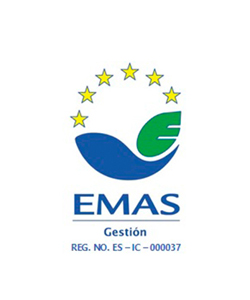
European Certificate for Environmental Responsibility since 2005

Certified since 2008 by the Responsible Tourism Institute and since 2021 complying with the Biosphere LifeStyle actions aligned with the 17 Sustainable Development Goals of the United Nations 2030 Agenda.

ISO 9001 – TUV Rheinland Certificate – Quality management system certified to ISO 9001 since 2013, ISO 14001, and TUV Rheinland Certificate for high environmental friendliness since 2005
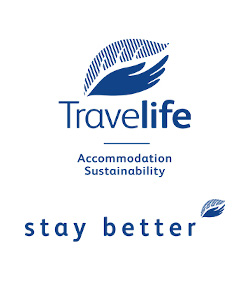
Certificado de bienestar animal de la Asociación Británica de Agentes de Viajes (ABTA)
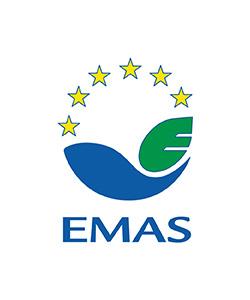
Certificado Europeo por la Responsabilidad Ambiental desde 2005

Certificado Humane Conservation con la máxima calificación al mejor parque zoológico de Europa American Humane Association (AHA) EEUU

Certificados desde 2008 por el Instituto de Turismo Responsable y desde 2021 cumpliendo con las acciones Biosphere LifeStyle alineadas con los 17 Objetivos de Desarrollo Sostenible de la Agenda 2030 de las Naciones Unidas

ISO 9001 – Certificado TUV Rheinland Sistema de gestión de calidad certificado respecto a la norma ISO 9001 desde 2013 ISO 14001 y Certificado TUV Rheinland por el alto respeto al Medio Ambiente desde 2005
As part of our informative and educational work on biodiversity, we have developed an encyclopaedia on cetaceans. It is an extensive document where you will find data and scientific information about the behaviour, myths and truths surrounding these animals.